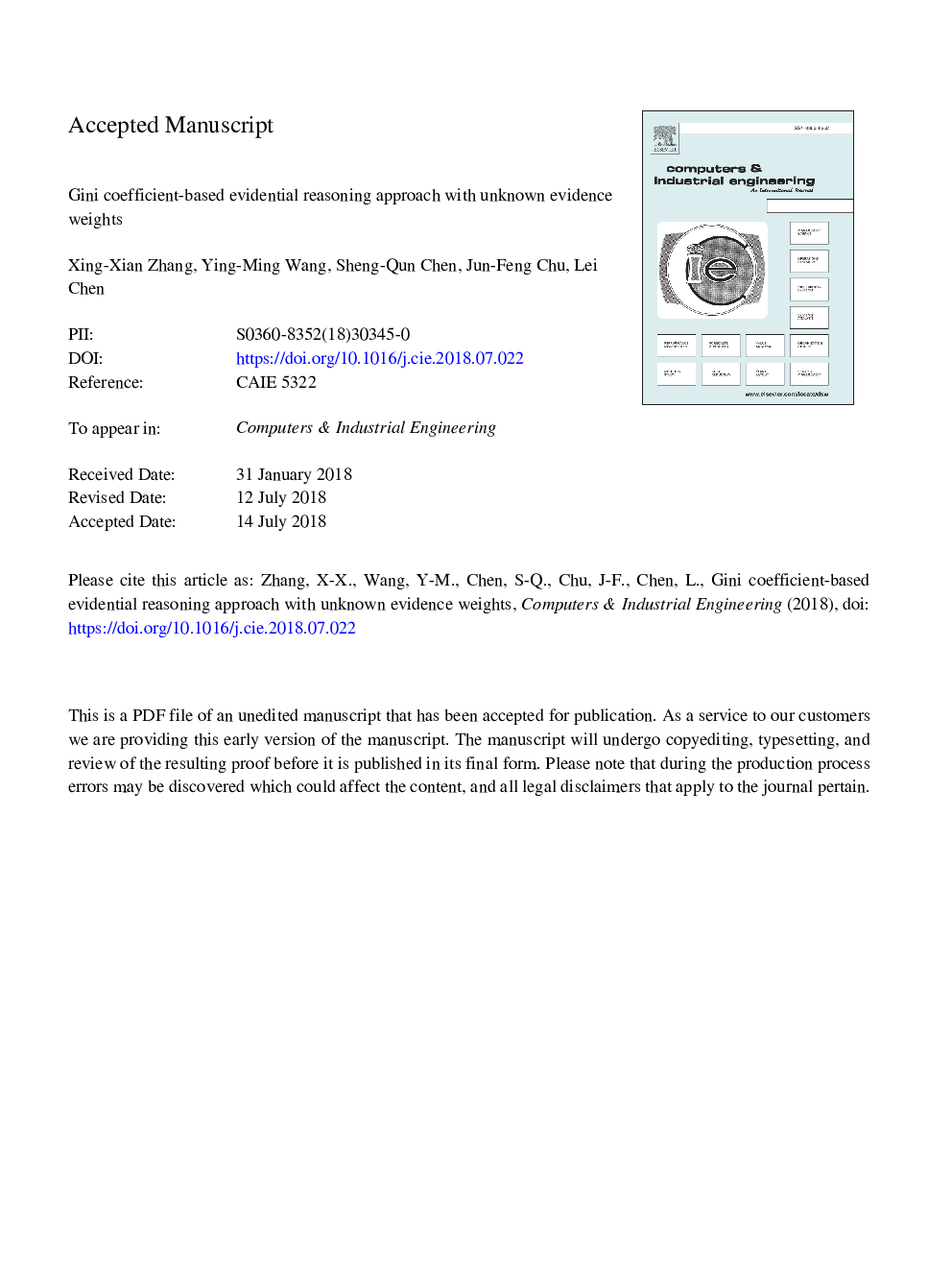| Article ID | Journal | Published Year | Pages | File Type |
|---|---|---|---|---|
| 7540611 | Computers & Industrial Engineering | 2018 | 27 Pages |
Abstract
The determination of evidence weights is an important step in evidence combination, which significantly influences final results. Taking into account the assumption of “psychology of economic man”, decision-makers may tend to seek similar pieces of evidence to support their own evidence in the process of negotiation and thereby forming an alliance of benefit. In the process of negotiation, decision-makers are concerned about the fairness of negotiation. To achieve the aim of fairness, in this paper, we extend the concept of evidential reasoning (ER) to evidential reasoning based on Gini coefficient (ERBGC) to obtain the weights of evidence. The main concept of the ERBGC approach is that the decision-maker is willing to engage negotiation with others only when the negotiation process is fair, that means the gap between maximum and minimum distributed interests among all decision-makers is less than that without negotiation. It shows that negotiation can make interests distribution fairer among decision-makers. In this study, the optimization model was developed to generate the relative weights based on Gini coefficient and enable weighted evidence to be combined using the ER rule. The approach is then applied to a case study and compared with other related approaches to demonstrate the effectiveness and applicability.
Related Topics
Physical Sciences and Engineering
Engineering
Industrial and Manufacturing Engineering
Authors
Xing-Xian Zhang, Ying-Ming Wang, Sheng-Qun Chen, Jun-Feng Chu, Lei Chen,
